- Separate personal and business finances – Income and Expenses for a business should be in a separate bank account (even if you’re sole proprietor doing business in your personal name). Transfer funds between bank accounts if need to move money, so there’s a paper trail. This separation will not only make it easier to look back on business income and spending, but will also give you the best liability protection. Think of your business as a separate legal “person” with it’s own spending and record keeping needs.
- Bookkeeping needs scheduled, can’t be an afterthought – As 82% of small businesses fail due to cash flow (a.k.a. money issues), regular and scheduled time to keep bookkeeping up to date is crucial to keeping your business operating. Set up a frequent time (weekly for most businesses) to record all your income, expenses, pay bills, send invoices, handle payroll, and address any notices, etc to ensure that your business may continue to operate smoothly. If you can’t keep yourself to an internal deadline, set it up to send a weekly update to your accountant, business partner, or trusted friend.
- Accurate income & reporting – Ensuring that you accurately record money earned will help to make sure that you’re not paying taxes on transfers between you and the business or between business accounts. The income will also need to be accurate to accurately report for sales and excise tax (and avoid the extra expenses of having to amend reports later)
- Accurate expenses = lower tax bills – The IRS will require evidence that business deductions were valid. The easiest way to do this is to track spending and record it as you go, ensuring that you get full credit for all those ordinary and necessary business spending. It will be much more difficult, and time consuming, to try to research what that check you wrote was for next spring (if you wait to do your accounting until tax time) and even more unlikely if you wait until you’re audited. Save yourself the time and stress, and keep track of business expenses with enough evidence as you go.
- Payroll is High Risk & Regulation – There are multiple laws in place to provide protection to employees, making this a crucial area of your business to stay current on! Make sure you’re following labor laws, including when you need to pay employees, payroll taxes, and benefits/garnishments. Business owners that fail to correctly administer payroll could face hefty fines or worse! In this area, the cost to ensure it’s done correctly the first time, is well worth the extra spending (and it’s a business deduction!) so be sure to consult with your accountant if you’re unsure.
- Utilize Technology– There are software and app options for many of the business areas that are time- consuming to track: from invoicing on the go, mileage tracking, or employee time tracking using geofencing… the options are endless. Make sure to do the research and find technology that reduces your time involved without increasing your stress (and ensure that it’s compatible with other software you’ve already implemented) and you can ensure you have more time for what you love to do in your business!
- Safeguard Your Finances – Whether you are doing all the work on your own or have employees handling some or outsourced parts of it, you need to regularly review the business finances to ensure that they make sense. Has your profit margin decreased (and why)? Is it time to adjust prices or bidding? Time to adjust payroll? Is there processes or supply chains that could be simplified to save time or money? Are you reaching your business goals or need to increase marketing efforts? Does your spending align with your business values? If you’re not regularly reviewing updated and accurate financial information, you’re not going to stay current with your market and can’t maximize your profit.
- Avoid Late Penalties and Interest – bookkeeping is more than just recording what has already happened, it’s also staying up to date on actions that you need to take to keep business operations running. Regular bill payments and bank reconciliations will ensure that you aren’t paying unnecessary interest and penalties. Additionally, fines and penalties may not be a business deduction (especially if paid for violations/wrong-doing) which could lead to paying taxes on money that you don’t still have!
- Quarterly Review & Estimated Tax Payments – Self employed business owners should be making at least quarterly estimated tax payments (corporation owners paid through payroll may still need to be make quarterly estimates if they don’t have enough federal withholding on their paychecks). The best way to ensure that you are paying the correct taxes is to consult with your accountant. Tax planning to ensure that you’re maximizing the timing of purchases and to discuss potential changes to how you’re operating are also good things to discuss at these regular meetings. If you’re not doing this quarterly, ensure that you are meeting with your professional at least a few months before the end of the tax year to fit in tax planning and adjust your final quarter estimate for the year while there’s still enough of the year left to execute any purchases or changes. Your professional will need accurate bookkeeping to be done prior to this meeting, which should be a breeze if you’re staying on schedule (see # 2 above).
- File and pay taxes on time. Once you get behind, it’s really hard to get the past and current all caught back up. Ensure that you stay current, don’t miss deadlines, and give your business the best chance of success. The decreased stress will allow you to focus on why you went into business in the first place and how you can maximize your operations as you move forward.
If you or someone you know are in need of accounting, bookkeeping or tax services, contact R&R Accounting & Tax for all your needs.

